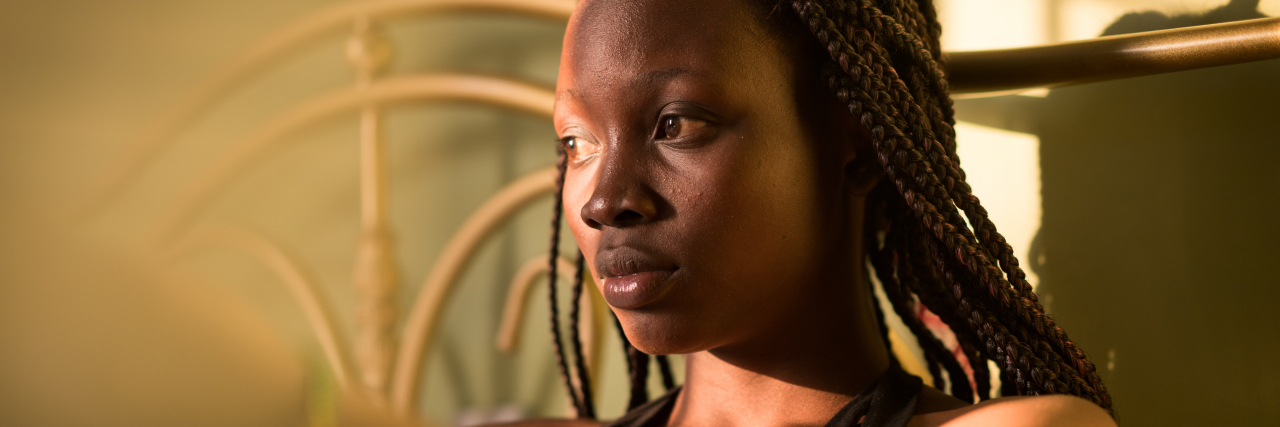I Refused to See a Psychiatrist Until I Found a Black One, Here's Why
Editor's Note
The following article contains details about racism and medical bias that may be triggering.
I’ve been in cognitive behavioral therapy (CBT) for years. I’ve had multiple talk therapists all with different perspectives and races.
The first therapist I visited was a white woman who couldn’t comprehend my racial trauma. The second was someone who was Guatemalan, and that was short-lived due to me running out of free student EAP sessions. Then I had my first Black therapist who was probably the worst one I’ve had to date, only to find the Black therapist I have now who I’ve been happily seeing for years.
Other relevant stories:
• Can a Therapist Diagnose ADHD?
• ADHD Difficulty Waking Up in the Morning
• Can You Have OCD and ADHD?
• What is ADHD?
All of these people, and I never made the jump to seeing an actual psychiatrist to get an official diagnosis. At one point, I didn’t want to be medicated, so I didn’t see the point of spending the money, but as I came to realize that I lived with attention-deficit/hyperactivity disorder (ADHD) and saw how it was making my life a bit harder, I started seriously thinking about seeing a professional.
The one hesitancy that remained was: “What if they aren’t Black?”
Having a Black mental health professional helps a lot because they understand the cultural narratives and history behind the way you were raised, and they’re able to maintain that nuance throughout conversations about your trauma. Having a Black therapist allows me a level of comfortability and transparency I don’t feel with white mental health professionals.
I tried Googling for Black psychiatrists in my area a couple times, but nothing ever came up. At the end of the day, the potential for misdiagnosis would only increase if I saw a non-Black therapist, which could potentially put my life in danger as a Black woman who struggles with suicidal ideation. Due to that, seeing a non-Black psychiatrist would actually put me in more harm, compared to the struggle that’s nearly normalized in my life due to my self-diagnosed ADHD.
According to Counseling Today, 86% of psychologists are white, with only 2% accounting for African American or Black within the American Psychological Association. There’s been research stating that implicit bias and stereotyping lead to Black folk getting misdiagnosed and thus improper treatment for their disorders. This is especially seen in Black individuals and children with ADHD.
A study in 2016 showcased that while Black children showed traits of ADHD more than their white counterparts, they were still diagnosed at much lower rates. The traits of ADHD — which can be hyperactivity, impulsivity, and chattiness — would then get Black children labeled as unruly, rowdy, or poorly behaved which then leads to disciplinary action for a neurodivergence.
I have been on the other side of that, constantly being chastised for my poor attention span, forgetfulness, and talkative nature. I wasn’t a “bad kid,” I just had untreated and undiagnosed ADHD.
Additionally, Black people make up a larger percentage of people incarcerated in prisons. It’s well-known how the prison industrial complex pushes Black children into the prison system. 40% of incarcerated inmates have ADHD – a larger percentage when compared to the overall population.
The lack of ADHD diagnosis can also be attributed to factors such as poverty, lack of resources and education, and other systemic issues that the Black American community has to live through due to racism.
Knowing all of this, the idea of having a non-Black psychiatrist gave me enough anxiety that I refused to even try.
When I walked in and saw that she was a dark skin woman with sisterlocks, I immediately relaxed. I answered her questions honestly, knowing that I was really being seen and heard as exactly who I was and not as a Black body sitting on an oversized couch. She affirmed me, having the warmest and kindest energy that allowed me to trust her with traumatic events and facts about my mind that I sometimes hide from others.
Representation is important, yes. As a Black woman who works in media, I know that all too well, but it goes beyond the slogan “representation matters.” It does matter, don’t get me wrong, but when it comes to health, a Black person being listened to by their health care provider can be and is often a case of life or death. Obviously, a mental health professional isn’t immediately amazing because they’re Black, but it does allow a certain level of cultural trauma-based informed care, that no matter how much training a non-Black or non-BIPOC person has, they will never firmly be able to grasp and understand the full picture.
I’m now on my way to getting officially tested for ADHD, something I self-diagnosed for myself two to three years ago. Being heard changes everything, and now as I move forward in my mental health treatment journey, I feel secure that both my cognitive behavioral talk therapist and now my psychiatrist have my back 100% as a Black, queer, Neurodivergent woman.
Getty image by Jasmin Merdan

